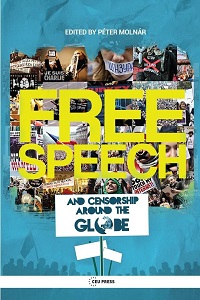
We kindly inform you that, as long as the subject affiliation of our 300.000+ articles is in progress, you might get unsufficient or no results on your third level or second level search. In this case, please broaden your search criteria.


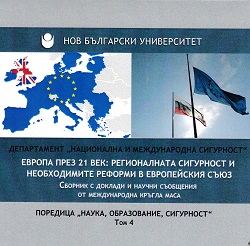
"Border environment" is characterized by control of national states on their own territory, also by “separateness and otherness, i.e. to be culturally different from the core of the majority of the population"; areas of regional and international conflicts, but also of adapting trough their cultural heterogeneity and their role as areas of migration. Besides being barriers, boundaries can be characterized with the metaphor of the "bridge" that connects and enables the passage of people and their connectivity, incentives on trade and flow of goods. 467 The text is based on field research along the Bulgarian-Greek border in the regions of Zlatograd and Gotse Delchev. The following issues are addressed: the state borders of Bulgaria and Greece as a means to control the territories and people during the socialist period; the reasons for the treatment of Bulgarian Muslims as a threat to the national security of both Bulgaria and Greece during the period 1944-1989; changes in the functioning of borders and perception of border areas rather as a bridge of economic and cultural exchange during post-socialism; border as a bridge space of economic and cultural exchanges beyond 2010.
More...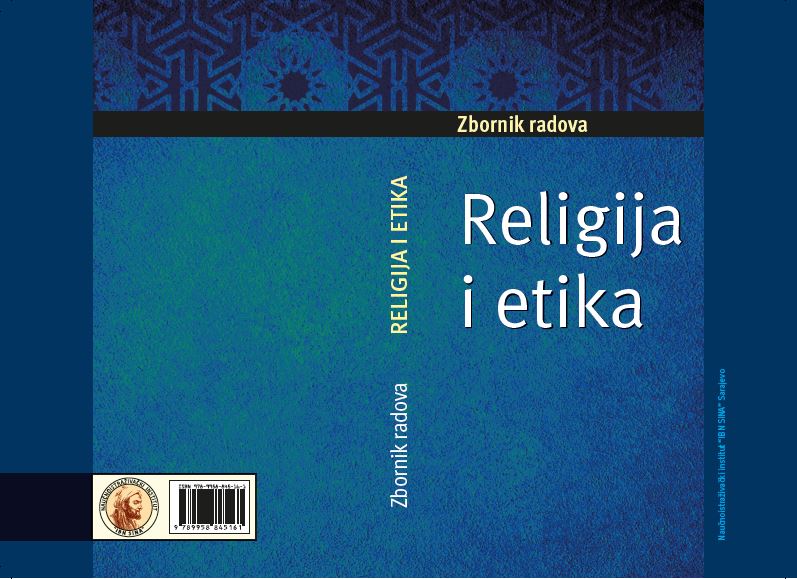
Tekst predstavlja svojevrsni presjek predavanja profesora Morteze Motahharija u vezi s islamskom etikom i poimanjem morala u islamu. Budući da je praktično riječ o nizu predavanja sačuvanih uglavnom na magnetofonskim vrpcama i kasnije redigiranim za štampu, pokušali smo nekoliko takvih kazivanja uvezati u jednu smisaonu cjelinu.
More...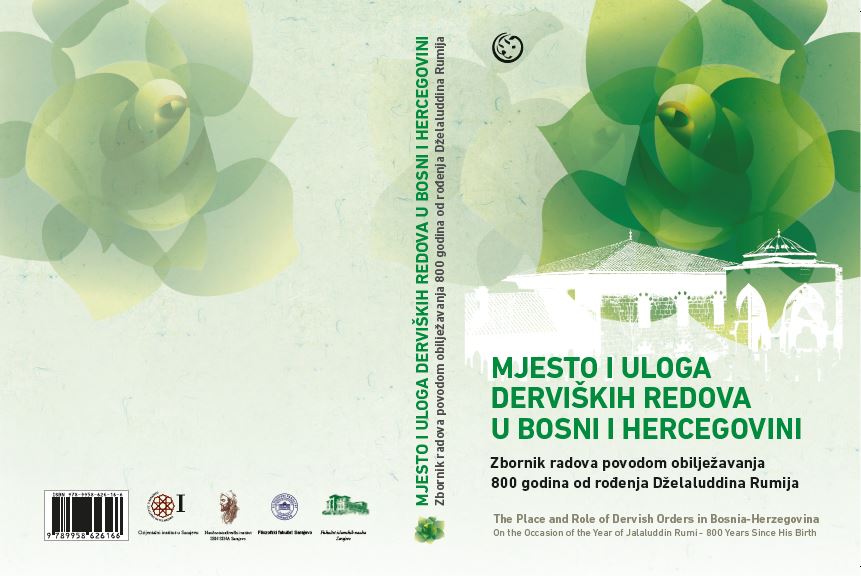
In this paper, the focus is on two issues: the question of Mevlana’s ancestry and the task of Iranians in presenting Mevlana’s literary heritage in the world. On the basis of a quotation from the work Manāqebol-‘ārefīnby Aflāki, prof. Džalālī in an argumentative manner writes about Mevlana’s Khorasanian ancestry, and he further supports his argument by the fact tha tall Mevlana’s works were written in Persian. On the other hand, by gradual introduction into the world of Mevlana’s poetry, professor shows that, although Mevlana’s thought was shaped by the culture of Khorasanian mental and intellectual mind-set, his world reaches all the way to the homeland of his soul, which is the Najistan for whom the naj weeps so painfully. Iranian cultural workers have a task to show that Mevlana is a descendant of Iranian civilization and rich cultural heritage in Persian by argumentative and academic promotion of Mevlana’s spiritual heritage.
More...
The theme of this work relates to certain parts of Ibn ‘Arabi’s treatise Rūhal-Quds. Those parts which express his observation and critical judgment of certain models of behavior and actions of individuals in Sufi circles are singled out. The main characteristic of the emphasized parts is its simplicity,but also the directness of the expression. Ibn ‘Arabi’s Treatise was written in the beginning of 13th century in Mecca.
More...
During his journey to hajj in 1969, Fejzulah Efendija Hadžibajrić obtained,in his words ‘’an honorary mavlavi tarikat’’ while on the way tohajj – during his meeting with Husayn-efendi Holat, a vakil of the shaykhof mavlavi tarikat. This event stands apart from shaykh certificate for kaderitarikat which he received in Konja while on his way back to Sarajevo.Right after receiving the honorary mavlavi tarikat, in resplendent Medina,in Haremi-Šerif, he took an oath at Mavlavi shaykh hadži Fehmi-Efendi Konjali. Apart from these, Fejzulah-Efendija obtained permission foriršad for Rufai, Nakshibandi, Shadhili and Badawi tarikat.
More...
U poslednjoj deceniji multikulturalizam je postao svakodnevni pojam na koji nailazite svugde: u svakodnevnoj raspravi, političkim debatama, sociološkoj i politikološkoj literaturi. On je nezaobilazan začin akademskog diskursa. Ipak, za taj pojam je uvek povezano nešto uznemirujuće neprecizno. Često ga koriste da bi se opisali uslovi koji već postoje u Zapadnoj Evropi, Sjedinjenim Državama ili drugde, zbog toga što tamo stvarno postoje različite kulturne grupacije i useljeničke zajednice. Pri tome se malo ili uopšte ne obrazlaže kako te različite kulture zaista koegzistiraju. U opticaju je još jedna primena pojma, pri čemu se indirektno upućuje na društveni razvoj koji neosporno ima da se dogodi u doglednoj budućnosti, i na čije se izazove moramo pripremiti. Multikulturalizam je proces. To je pre nešto što će se tek desiti nego ono što već jeste realnost. Oba ova načina upotrebe pojma imaju nešto zajedničko, a to je da se multikulturalizam u oba slučaja shvata kao nešto deskriptivno. On opisuje postojeće stanje ili razvoj prema kojem se društvo kreće u bliskoj budućnosti. Ali nijedno od ova dva značenja ne nudi zadovoljavajući, precizan opis društvene koegzistencije i njenih različitih iskustava. Kaže se samo da to nešto postoji, ili da će doći – ali ne i šta je to što jeste, ili što treba da dođe. Ne kaže se čak ni koje kulture konstituišu to pretpostavljeno mnoštvo, niti kako te kulture treba da koegzistiraju
More...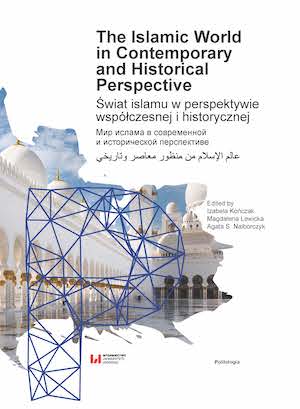

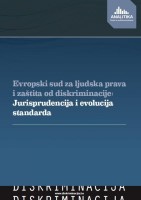
Publikacija je objavljena uz podršku američkog naroda preko Američke agencije za međunarodni razvoj (USAID). Autori ove publikacije su odgovorni za njen sadržaj i stavovi koji su u njoj izneseni ne odražavaju stavove USAID-a, Vlade Sjedinjenih Američkih Država niti fonda otvoreno društvo BiH.
More...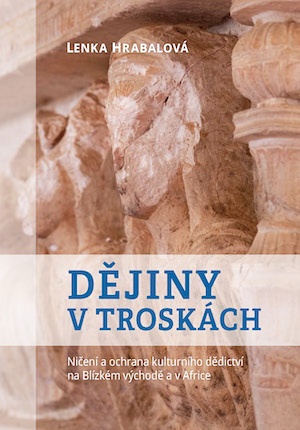
This publication deals with various factors which influence destructions and reconstructions of cultural heritage in the Middle East and North Africa. The destruction of cultural property in the Middle East and North Africa cannot be characterized as purely religious but must be seen in the context of a number of reasons, which may be related to propaganda, strategic and military reasons, or political and ethnic issues. At the same time, it must be borne in mind that jihadist groups are not the only ones that kill cultural and historical objects worth. Book is divided into three main parts. The first is a general introduction to the relevant legislation and its implementation. The second part examines the reasons for destruction and main ideas in reconstructions. It presents two types of destructions present in the region: those motivated by the religion and secular ones, explaining its existence in the Muslim society from historical, sociological, and religious perspectives. The third part is the central part of the dissertation. It consists of five case studies of five countries of the Muslim World: Syria, Iraq, Mali, Yemen, and Saudi Arabia. These studies are based on previous findings and aim to present a foundation for further comparison in the conclusion of the publication.
More...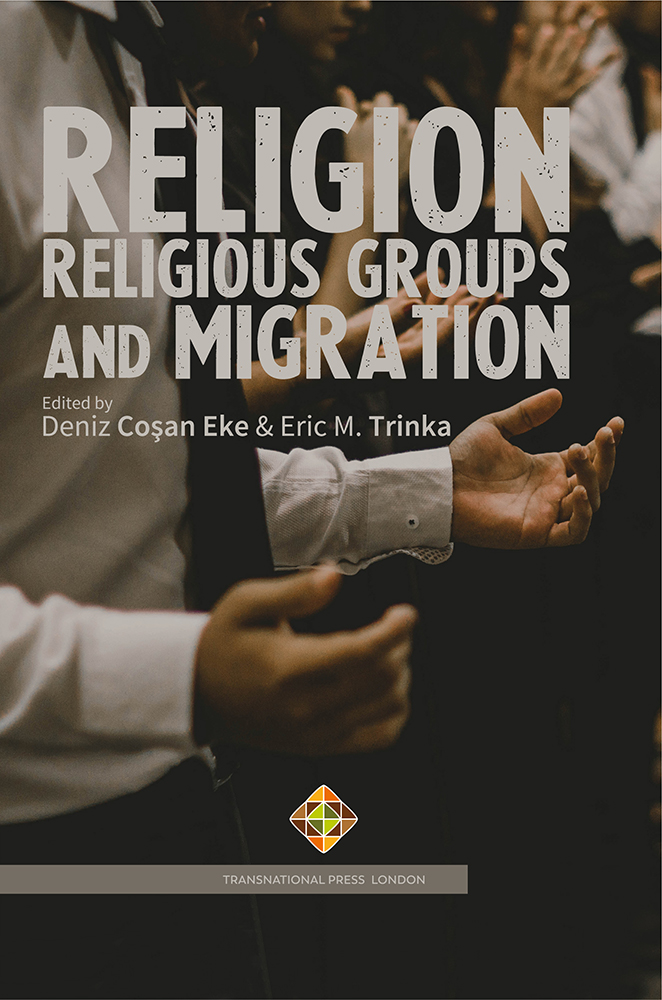
The relationship between religion, religious groups, and migration is an important topic of recent social science debate. Migration affects all aspects of the lives of those who have left their homes, including facets characterized as religious. Religion and religious identity are linked to social, cultural, and political issues, including integration, identity negotiation, diasporic community formation, interreligious dialogue, and religious pluralism. On the one hand, migration can change religious cultures, rituals, and traditions through the experience of mobility and the response of the host country. On the other hand, religious groups can encourage migration. In this context, new forms of transnational interaction and organization have emerged that contribute to the reformulation of community and identity. In some cases, such changes can lead to new conflicts and even trigger religious radicalization. This edited book consists of essays that bring together various perspectives on religious groups and their migration processes in different geographical regions. The aim is to empirically analyze the discourse and practices of national and transnational religious groups while investigating the relationship of religion and migration to political, historical, cultural, and social transitions. The book brings together academics and practitioners from different countries through interdisciplinary approaches that will be of interest to a wide readership of scholars and practitioners.
More...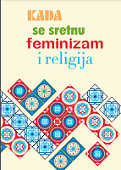
Ideja o zborniku Kada se sretnu feminizam i religija nastala je nakon ciklusa seminara održanih u nekoliko bosanskohercegovačkih gradova na temu Etos rodne ravnopravnosti. Partnerski su ih organizirali IMIC Zajedno Sarajevo, TPO Fondacija iz Sarajeva i Omladinski forum iz Mostara, uz podršku Ekumenske ženske inicijative iz Omiša. Seminare su vodili doc. dr. Zilka Spahić Šiljak, dr. Drago Bojić i mr. sci. Božana Katava. Cilj je bio, dekonstrukcijom religijskih narativa o antropologiji čovjeka, pokazati mogućim reduciranje stereotipnih shvatanja uloge žene i muškarca u porodici i društvu, te pokazati da sveti tekstovi nude okvir i za egalitarna čitanja rodnih odnosa. Učesnici/e seminara su bili/e nastavnici/e, studenti/ce i aktivisti/ce iz Tuzle, Sarajeva i Mostara. Inspirirani teorijskim promišljanjima, ali i praktičnim refleksijama rodnih pitanja u bh. društvu, odlučili su napisati kraće tekstove za ovaj zbornik i tako doprinijeti raspravama o rodnoj ravnopravnosti. Tekstovi su produkt interpretiranja vlastitih iskustava, promišljanja, ideja, viđenja i stavova kroz različite i zasebno tematizirane narative koji predstavljaju dijelove mozaika rodne politike u našem društvu.
More...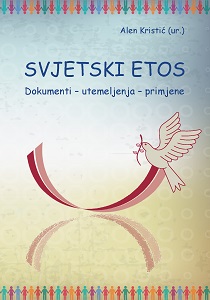
Knjiga „Svjetski etos: Dokumenti – utemeljenja – primjene” nastala je u sklopu projekta TPO Fondacije iz Sarajeva „Integracija svjetskog etosa u odgojno-obrazovne strukture i procese u Bosni i Hercegovini” iza kojeg je svojom stručnom i financijskom pomoći stala i Zaklada svjetskog etosa iz Tübingena. Za sada jedinstvena u našoj regiji, ova knjiga pruža sustavan uvid u temeljne dokumente na kojima počiva projekt svjetskog etosa, pri čemu je posebna pozornost posvećena različitim načinima utemeljenja i primjene svjetskog etosa u suvremenim društvima sučeljenim s globalizacijom koja prepuštena sebi prijeti ugroziti ne samo humanistička dostignuća naše civilizacije nego i sam planet Zemlju.
More...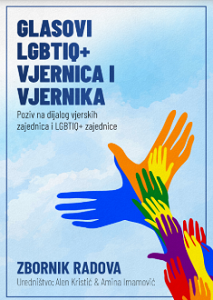
U srcu Balkana, unutar Bosne i Hercegovine, susretanje vjere, organizovane religije i seksualnosti odavno je tema prekrivena tišinom i osuđivanjem. To je mjesto gdje se duboko ukorijenjena tradicija i vjera susreću sa sve promjenjivijim razumijevanjem ljudskih prava, posebno onih LGBTIQ+ osoba. Ovaj zbornik tekstova, kolekcija glasova različitih autorica i autora, vodi čitateljstvo na putovanje kako bi se otkrile skrivene priče i prihvatila prisutnost LGBTIQ+ vjernika/ca u društvima Zapadnog Balkana, a sjene stigme bacile daleko, kao i kako bi se istražili načini na koje unutar organiziranih religijskih zajednica možemo kreirati prostore prihvatanja, razumijevanja i sigurnosti za LGBTIQ+ zajednicu i vjernike/ce unutar nje. Da bismo se pozabavili ovom tišinom, nužno je angažirati se u otvorenom dijalogu, slobodnom od predrasuda i unaprijed oblikovanih mišljenja i dogmi. Naša kolekcija tekstova služi kao katalizator za ovaj dijalog, osvjetljujući iskustva, borbe i nade LGBTIQ+ osoba koje zadržavaju svoju vjeru i duhovnost u bosanskohercegovačkom kontekstu. Ona baca svjetlo na izazove s kojima se suočavaju, kako unutar vjerskih zajednica tako i u širem društvu. Danas svjedočimo razlikama između stavova vjerskih zajednica i ljudskih prava LGBTIQ+ osoba. Štaviše, unutar samih vjerskih zajednica postoje proturječja i kolebanja oko ovih pitanja, pa i u širem kontekstu seksualnosti, koja odzvanjaju i u raznolikosti viđenja povezanosti i odnosa religije, vjerovanja, seksualnosti i roda unutar same LGBTIQ+ zajednice. Utjecaj vjerskih institucija u oblikovanju diskursa i javnog mnijenja u Bosni i Hercegovini i regiji Zapadnog Balkana je neosporan, što suočavanje s postojećim predrasudama i zabludama čini još važnijim. Raznoliki glasovi zastupljeni u ovom zborniku udružuju se kako bi pozvali na otvoren, empatičan i inkluzivan razgovor o postojanju i prihvaćanju LGBTIQ+ vjernika/ca. Ovaj zbornik nije samo kolekcija tekstova; on je poziv na akciju. Poziva čitateljstvo da istraži križišta vjere, ljubavi i identiteta te potiče razumijevanje i suosjećanje kako bismo zajedno radili na destigmatizaciji iskustava LGBTIQ+ vjernica/ka u Bosni i Hercegovini i šire. Naša iskrena želja je da ovaj zbornik posluži kao temelj promjene, te da otvori vrata prema inkluzivnijem i suosjećajnijem društvu na Balkanu i šire. Pozivamo vas da krenete na ovo putovanje s nama, da prihvatite bogatstvo različitih iskustava i perspektiva koje čine naše društvo, te da zajedno radimo na stvaranju pravednije i inkluzivnije budućnosti.
More...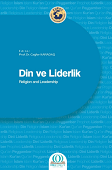
The Turkish term “lider” is derived from the English word “leader”, which denotes the concept of leading or advancing. This term has been adopted into Turkish with a similar meaning. In Turkish usage, the term “lider” often implies the concept of “önder” (guide), and similarly, “liderlik” is associated with “önderlik” (guidance). The introduction of various adjectives has expanded and diversified the application of the term. For example, terms such as religious leader, political leader, community leader, transformational leader, and charismatic leader illustrate this broad usage. In the context of the “Religion and Leadership Workshop” organized by the Qur’an Research Foundation (KURAV), the term “lider” should primarily be interpreted as referring to a “religious leader” or a “leader in religion”. However, it is important to recognize that a religious leader may also exhibit social, cultural, charismatic, and transformative attributes, thereby integrating aspects of political, social, or charismatic leadership. The ideal framework for such a leadership, as exemplified by prophets, represents an aspirational model, though real-life leaders may vary in their alignment with this ideal. This dimension of leadership is also explored in our workshop through papers, discussions, and contributions when they touch on the realities and contemporary situations. The Religion and Leadership Workshop features four principal papers, including an inaugural conference, and the final volume of proceedings encompasses a total of five papers. These are Yalçın Akdoğan’s “Religion and Leadership” (Inaugural Conference); Yusuf Şevki Yavuz’s “Leadership in the Qur’an”; Adem Apak’s “Muhammad (pbuh) and His Leadership”; Bayram Ali Çetinkaya’s “Turkey-Centered Politics in Contemporary Islamic Thought and Leadership Quests”, and Mehmet Ali Büyükkara’s “Religious Leadership in Turkey”. In addition to these papers, brief discussions contributed by Adnan Demircan, Ahmet Yaman, Bünyamin Erul, Yusuf Şevki Yavuz, and Cağfer Karadaş provide further insights. The workshop is also enriched by individual assessments from participants, including Mustafa Gencer’s “Ottoman Modernization in the Tanzimat and Meşrutiyet Periods”; Mustafa Tekin’s “Religion in Leadership and Leadership in Religion”, and Şaban Ali Düzgün’s “Process Analysis of Modernization from the Ottoman Empire to the Turkish Republic”. These contributions collectively offer valuable perspectives and enhance the scholarly discourse of the event.
More...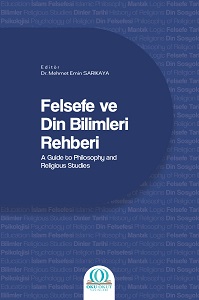
Philosophy and Religious Studies, one of the three main departments within the Islamic Sciences and Theology faculties, investigates the phenomenon of religion through the lens of humanities disciplines such as history, sociology, logic, psychology, philosophy, and education. Situated at the intersection of theology and the humanities, the Department of Philosophy and Religious Studies plays a significant role in the internationalization of theology education. Concurrently, these disciplines serve as intermediaries in contextualizing Islamic Sciences within contemporary understanding. The Department of Philosophy and Religious Studies generates data on contentious contemporary issues such as artificial intelligence, transhumanism, migration, and conflict resolution, thereby elucidating the intellectual background of these issues and providing theoretical insights through empirical research. Within this framework, the study addresses the incorporation of courses offered by the Department of Philosophy and Religious Studies, presenting them aligned with the project's objectives. The study aims to introduce the Department of Philosophy and Religious Studies, elucidating its content, functions, and outcomes, to foster critical thinking and analytical skills among students through philosophical education, facilitating a deeper comprehension of diverse aspects of religion, and delineating the disparities and connections between philosophy of religion and religious sciences. Furthermore, the study seeks to enable students to assess the logical and philosophical dimensions of various religions and belief systems, while also contributing to theological education by highlighting the unique fields of study and values inherent in Philosophy and Religious Studies. Ultimately, the study endeavors to facilitate the international integration of the Department of Philosophy and Religious Studies and its adaptation to contemporary needs within theological education. The research is predicated on the premise that Philosophy and Religious Studies should to be more inadequately introduced to students, particularly at the secondary school level, despite their increasing relevance in light of evolving global agendas. As a result of the analyses conducted, insights have been gleaned regarding the content, functioning, outcomes, fields of study, and methodologies of departmental courses. Consequently, this book aims to introduce the field of Philosophy and Religious Studies to students from high school to graduate levels, guiding new researchers, and offering ideas and direction to advisors and students regarding potential areas of study. Covering a broad research area alongside its departments, this book will guide prospective theology students, current departmental students, and those seeking graduate education within this discipline. In alignment with the stated objectives, the study will conclude by compiling chapters contributed by lecturers from diverse disciplines. Employing a quantitative research method and documentation technique, the study has gathered data from articles, books, field research, and lecturers’ experiencies. Detailed accounts of sub-units of Philosophy and Religious Studies, such as the History of Religions, Sociology of Religion, Psychology of Religion, Philosophy of Religion, Religious Education, Islamic Philosophy, Logic, and History of Philosophy, are provided, covering aspects such as history, methodologies, research topics, notable figures, fundamental resources, graduate education, academic journals, interdepartmental relations, and international collaborations. Each completed chapter has been peer-reviewed by relevant department lecturers using blind refereeing principles, with necessary corrections implemented by the authors. The book encompasses eight departments, delving beyond superficial analysis to address foundational issues within each department. Additionally, each chapter includes recommended readings and films. This study asserts itself as a potential textbook for introducing Philosophy and Religious Studies as an elective course in Imam Hatip high schools. It can also serve as an elective textbook for first-year undergraduate programs.
More...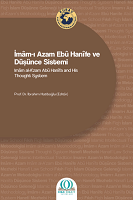
The book Imām al-Aʿzam Abū Hanīfa and His Thought System delves deeply into the life, methodology, and intellectual world of Imām al-Aʿzam Abū Hanīfa, one of the cornerstones of Islamic thought. The book comprises papers and discussions presented at the “Symposium on Imām al-Azam Abū Hanīfa and His System of Thought”, organized by the Qur’an Research Foundation (KURAV) in Bursa from October 16–19, 2003. In this symposium, which was contributed to by seventy-seven academics, the personality and ideas of Abū Hanīfa were addressed from a broad perspective. The work extensively examines topics such as “Abū Hanīfa’s Personality,” “His Methodology (I-III),” “The Hanafī School (III),” “Abū Hanīfa in Political and Cultural Tradition,” “Abū Hanīfa and the Science of Kalām,” “Abū Hanīfa’s Thought (I-II),” “Abū Hanīfa and Hadīth (I-II),” and “Abū Hanīfa’s Place in Legal Thought.” In particular, the book offers captivating details about his understanding of hadīth and sunnah, his approach to interpreting narrations, and his influence on Islamic sciences. This book presents Abū Hanīfa’s thoughts not only in a historical context but also as a source of inspiration for contemporary Islamic thought, offering readers a multi-dimensional perspective. It appeals to both academics and a broader audience interested in Abū Hanīfa’s intellectual world. As such, it serves as a significant reference work for those engaged in the field of Islamic studies. Abū Hanīfa is one of the founding figures who shaped the Islamic community both doctrinally and practically from the very early periods. He lived at a time when narrations had not yet been compiled in specific collections, and his thought and worldview were grounded in the texts (nass) without any derogatory treatment. He bequeathed to us a vision that established a balance between faith (iman), worship (ibadah), excellence (ihsan), and the harmony between the outward (zahir) and inward (batin) dimensions of Islamic life. The comprehensive perspective established by Imām al-Aʿzam has continued to serve as a consistent and enduring model of coherent thought, always offering a way out for humanity during times of crisis. The scholarly personality of the great Abū Hanīfa has been the subject of numerous academic studies; however, for the first time, an event of such a wide scope, reflecting Turkey’s intellectual heritage, has been organized to address his multifaceted contributions. Not only Sunni jurisprudential thought but also the broader conception of Islamic jurisprudence, and not only from the perspective of religious sciences but also encompassing social sciences, were examined through a holistic approach. Over forty papers and discussions provided an in-depth analysis of his thought. Through this scholarly event, the internal consistency of Abū Hanīfa’s thought, as well as the Hanafī intellectual tradition developed after him, was highlighted. Attention was drawn to its capacity to foster harmony between different branches of knowledge, its comprehensive nature, and its accurate perception of “social reality” expressed through a distinct worldview in line with the requirements of scientific truth. This demonstrates that the goals of the scientific event we organized were achieved. Indeed, even though more than twenty years have passed since this event, the work containing the papers presented has not lost its value or relevance, and there is now a renewed need to present it once again to interested parties.
More...
Natural disasters, poverty, conflicts and climate crisis cause more and more people in the world to become in need of humanitarian aid. Due to its geographical, geopolitical and historical location, humanitarian aid has become an issue of strategic importance for Türkiye. Frequent natural disasters in Türkiye, Türkiye’s proximity to chronic conflict zones, the concentration of communities in need of humanitarian aid in geographies in Türkiye’s sphere of influence, and Türkiye’s recent diplomacy/humanitarian diplomacy moves are the main reasons why humanitarian aid has become strategically important for Türkiye in theoretical and practical terms. To this, the lack of a ‘responsible’ and ‘conscientious’ leader or actor at the global level and the failure of international organizations to prevent conflicts must also be added. In such a theoretical and intellectual background and in the midst of the practical humanitarian aid realities culminating in the 2023-2025 Gaza Genocide, this book emerged from the papers presented at the First International Humanitarian Aid Symposium hosted by the Institute of International Relations and Strategic Studies (ULİSA IIRSR) of Ankara Yıldırım Beyazıt University and organized in partnership with the Turkish Red Crescent, AYBU Technology Transfer Office, and Tirana New York University, in December 2024. The book deals with the issue of humanitarian aid from a broad perspective in the context of the reasons leading to humanitarian aid, the humanitarian aid process, and theoretical and practical discussions that can minimize the need for humanitarian aid. Book sheds light on the complex dimensions of humanitarian aid that fall within the field of disciplines such as economics, politics, sociology, psychology, health and theology. The book contains studies that focus on both theoretical analyses and field applications. The 13 chapters in the book offer a wide perspective, from the historical foundations of cooperation to digital solutions and artificial intelligence-supported systems. Prominent topics include Turkey’s humanitarian aid activities, new disaster management systems, religious and sociological dimensions of humanitarian aid, the relationship between migration and humanitarian aid, and the effects of modern technologies on humanitarian aid. Studies discussing these issues will make significant contributions to the academic literature and field studies. This book, prepared under the editorship of İbrahim Demir, Muhammed Oruç and Elmas Bener Otacı, offers an interdisciplinary perspective on humanitarian aid and aims to contribute to the development of humanitarian aid concepts, theories, and practices in the Turkish literature.
More...